New intake will be open every April, August and November over the year
3 Years or 9 Semesters of study
Tuition fee for local student is RM 44,925 and for international student is RM 67,165.
*The policies, regulations, procedures and fees are subject to change without prior notice of UNISEL.
Passed SPM or equivalent with FIVE (5) credits including the following subjects:
OR
GCE/O-Level or equivalent with FIVE credits (Grade C) in the following subjects:
Proficiency in English (Required for those whose medium of instruction is no in the English language.)
Pass International English Language Testing Services (IELTS) with a minimum of 5.5
OR
All courses are listed according to the first cohort (April intake). If you are interested to know more for other cohorts (August and November intake), feel free to contact coordinators from Diploma in Nursing.
Future Pathway
A qualified graduates Diploma in Nursing Unisel will be sitting for Registration Examination conducted by the Malaysian Nursing Board (Lembaga Jururawat Malaysia, LJM) in order to be given License to practice as a Professional Nurse.
Professional Nurses have a choice to specialize in various fields such as Midwifery, Pediatrics, Cardiothoracic, Orthopedics, Ophthalmology, Medical and Surgical, Gerontology, Emergency & Traumatology, Renal, Oncology, Maternal Child Health, Public health and many more. Overall, the demand for professionally trained and qualified nurses is higher in Malaysia even than elsewhere in the world. At least 130,000 nurses need to be trained by the year 2020 to meet WHO’s nurse-to-patient ratio (1:200).
Come and reach our program representatives. We are ready to answer any inquiry. Contact us now
